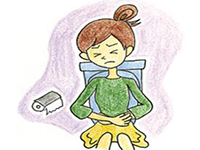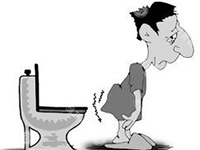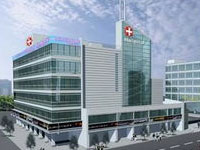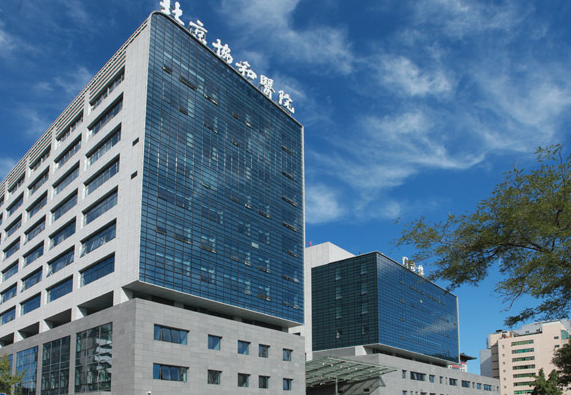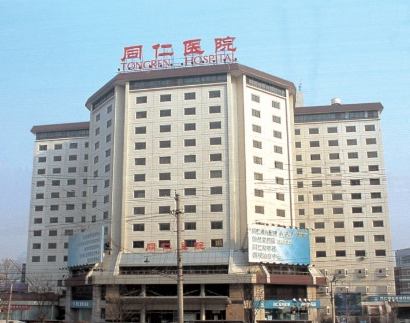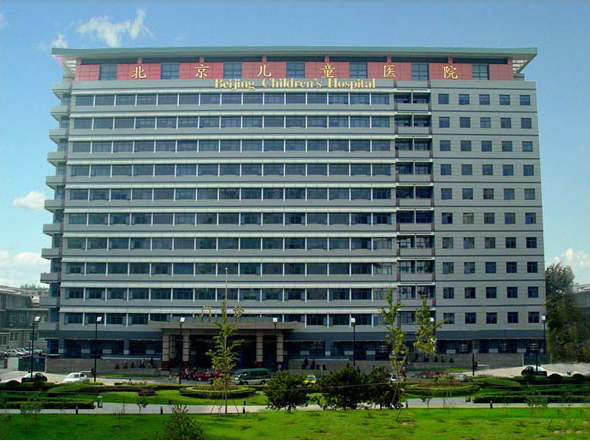便秘为主型IBS的治疗
正如之前提到的,大量的具有IBS症状的病人没有把症状报告给医生。而且一些有症状的病人即使去就诊也不要求进行特异的治疗,宁愿从关于他们诊断的解释和加重IBS症状的因素(包括应激和可能的饮食因素)中推断出众多的好处。作为一个循序渐进的过程,在IBS的有效治疗开始时建立相互信任的医患关系很有必要。(3)此过程的摘要见表3北京大学国际医院腹膜后肿瘤中心罗成华
医护人员应该使IBS病人打消疑虑,告诉他们病情不会恶化为有生命危险的其他疾病,最多有可能会表现为包括肠动力和感觉系统在内的生理学异常,IBS和社会心理的障碍有关,在出现症状时需要进行治疗。就这一点来说,确定这种情况的严重性也许有助于计划会有治疗作用的生活制度。举例来说,大多数伴有严重腹痛和其他影响整个生活质量症状的病人都需要进行躯体或性虐待史和/或前面提到的精神障碍的调查。(4)对这些病人来说早期进行心理或精神上的干预很有好处。如果一个消化道功能紊乱的病人是以生理学紊乱为主的话,进行药物疗法是合理的,并且可能会很有好处。
在已经诊断IBS后,饮食上的调整也许能改善症状。一项研究表明,在经过排除饮食调整并且逐渐加入不会导致附加症状的食物后,48%的IBS病人会受益。(30)60%以上的美国人不耐受乳糖,相应的症状类似于IBS,所以推荐在饮食中去除乳糖。(31)在正常的志愿者中,咖啡因和脱去咖啡碱的咖啡饮料都已经被证明会刺激直肠乙状结肠的活动。(32)山梨醇,一种作为无糖糖果、药物和抑酸剂主要成分的糖醇,可能会产生胃胀气、腹泻以及排气等类似于IBS的症状。建立包括锻炼和对应激状态进行治疗的常规也是被推荐的。有一种方法可以明确生活上的应激、饮食的构成以及其他心理社会因素是否加重了IBS的症状,就是在2-6周的时间内使用症状日志。这个方法可以用来确定饮食因素及应激事件和IBS症状的加重有关。这些日志可以被用作推荐饮食上的禁忌,应激状态的治疗和心理咨询。(2,3)
当病人和他们的医生认为目前的病情已经影响病人生活质量的时候,对IBS进行附加的治疗是有必要的。便秘为主型的IBS病人的最初治疗常常会增加食物膳食纤维的摄入以及添加商品化的填充剂。纤维可以减少整个消化道循环时间,减少结肠的收缩性。(33)有好几个研究已经证明增加纤维摄入的方法对便秘为主型的IBS病人有益。(3)各种各样的纤维补充剂已经有商业化的成品,包括含多羧钙的合成纤维(Fiberconò, Equalactin)。可溶性的纤维自然存在于一些水果和谷物中,包括苹果、桔子、杏、洋李和燕麦麸。欧车前,Metamucilò 和Konsylò的活性成分,也是一种可溶性的纤维。甲基纤维素,Citrucelò的有效成分,是一种不溶性的纤维,与可溶性纤维比较而言甲基纤维素理论上可以使一些病人减少排气,减轻胃胀气。非处方类的缓泻剂对一些便秘为主的IBS病人会有帮助。渗透性的缓泻剂包括镁乳、石蜡油及多库酯钠胶囊剂(如多库酯钠)对一些病人可以安全、有效的运用。电解质平衡溶液(MiralaxÔ)中的聚乙二醇是一种处方药物,它和结肠镜检查术前准备时使用的溶液类似,它的用法为16克溶于8盎司液体,1-2次/天。这种药物已经被证明对顽固性便秘的病人有效。(34)此外,解痉药物的治疗包括抗胆碱能药物也有助于缓解疼痛。(3)基于它们都能引起便秘,解痉药物在便秘为主型的IBS中的应用也受到限制。抗抑郁药已经在IBS和其他肠功能紊乱的治疗上应用,它的有效性最初发生在中枢神经系统的活动上。(3,33)三环抗抑郁药,一种具有抗胆碱能作用的药物,已经被证明能缓解IBS病人腹痛和腹泻的症状。(4)这些药物常常引起便秘,所以在便秘为主型的IBS的病人中这些药物应该慎用。选择性5-羟色胺再吸收抑制剂(SSRIs)可能会引起腹泻或便秘,它已经在IBS和其他肠功能紊乱的临床治疗中应用。循证医学的研究表明大多数IBS治疗方法的有效性还缺少远期疗效的观察。
最近,5-HT4受体激动剂tegaserod(Zelnormò)已被FDA批准用于便秘为主型IBS的治疗。这种药物可以高效率的结合5-HT4受体。在实验室的研究中显示它能刺激肠蠕动和肠分泌以及降低内脏的敏感性。(35)tegaserod也能刺激其他神经递质的释放,包括降钙素基因相关肽(它对胃肠道功能可能有影响)。(35,36)生理学的研究已经证明tegaserod能增强便秘为主型的IBS病人基础肠动力活动和纠正肠能动性。在批准这种药物之前,完成了三组随机的、安慰剂对照的为期12周的双盲临床试验,共2471名便秘为主型的IBS女性患者服用了tegaserod(6mg,bid)或安慰剂。(3,4)这些研究表明:tegaserod可以缓解便秘为主型IBS女性患者的不适以及其他症状(图2)。(37)另外,服用tegaserod的病人大便次数增多,腹痛缓解,大便粘度增加。(3,4,37)服用tegaserod最常见的限制其应用的副作用为腹泻。未来针对便秘为主型的IBS的治疗包括另外的5-HT4的激动剂,例如prucalopride 和renzapride。(38)IBS其他针对消化道的治疗正在进行研究,包括5-HT1受体激动剂、kappa阿片样物质受体激动剂、生长抑素类似剂以及神经激肽和速激肽的拮抗剂。(29)
参考文献:
Drossman DA, Corazziari E, Talley NJ, et al. Rome II: a multinational consensus document on functional gastrointestinal disorders. Gut 1999; 45:1-81.
Ehrenpreis ED, Burns EA, Hofmann C. The AFP Guide to Diagnosis and Management of the Irritable Bowel Syndrome. Illinois Academy of Family Physicians Press, Lisle, Illinois 2003.
Anon. Evidence-based position statement on the management of irritable bowel syndrome in North America. Am J Gastroenterol 2002; 97 (11 suppl): S1-5.
Drossman DA, Camilleri M, Mayer EA, Whitehead WE. AGA technical review on irritable syndrome. Gastroenterology. 2002; 123(6):2108-2131.
Mearin F, Balboa A, Badia X, Baro, et al. Irritable bowel syndrome subtypes according to bowel habit: revisiting the alternating subtype. Eur J Gastroenterol Hepatol 2003;15:165-72.
Drossman D, Li Z, Andruzzi E, Remple R, et al.
UShouseholder survey of functional gastrointestinal disorders. Prevalence, sociodemography, and health impact. Dig Dis Sci 1993;38:1569-80.
Coulie B, Camilleri M. Irritable bowel syndrome. Clinical Perspect Gastroenterol 1999;2:329-38.
Camilleri M, Williams DE. Economic burden of irritable bowel syndrome reappraised with strategies to control expenditures. Pharmacoeconomic 2000;4:331-8.
Zuckerman M, Guerra L, Drossman D, Foland J, Gregory G. Health-care-seeking behaviors related to bowel complaints: Hispanics versus non-Hispanic whites. Dig Dis Sci 1996;41:77-82.
Kalantar JS, Locke GR, Zinsmeister AR, Beighley CM, Talley NJ. Familial aggregation of irritable bowel syndrome: a prospective study. Gut 2003;52(12):1703-7.
El-Serag HB, Olden K,Bjorkman D. Health related quality of life among persons with irritable bowel syndrome: a systematic review. Aliment Pharmacol Ther 2002;16(6):1171-85.
Halder SL, Locke GR, Talley NJ, Fett SL, Zinmeister AR, Melton LJ. Impact of functional gastrointestinal disorders on health-related quality of life: a population-based case-control study. Aliment Pharmacol Ther 2004;19(2):233-42.
Gralnek I, Hays R, Kilbourne A, Naliboff, B, Mayer E. The impact of irritable bowel syndrome on health-related quality of life. Gastroenterology 2000;119:654-60.
Aziz Q, Thompson D. Brain-gut axis in health and disease. Gastroenterol 1998;114:559-78.
Thompson W, Longsreth G, Drossman D, Heaton K, et al. Irritable bowel syndrome. In: Drossman D, ed. The functional gastrointestinal disorders. Degnon Associates, McLean, VA, 2000.
Rao S. Visceral hyperalgia: the key for unraveling functional gastrointestinal disorders. Dig Dis 1996;14:271-5.
Mertz H, Naliboff B, Munakata J, Niazi N. Altered rectal perception is a biological marker of patients with irritable bowel syndrome. Gastroenterology 1995;109:40-52.
Kellow J, Eckersley C, Jones M. Enhanced perception of physiological motility in the irritable bowel syndrome. Gastroenterology 1991;101:1621-7.
Silverman D, Munakata J, Ennes H, Mandelkern M, et al. Regional cerebral activity in normal and pathological perception of visceral pain. Gastroenterology 1997;112:64-72.
Garcia-Rodriguez l, Ruigomez A. Increased risk of irritable bowel syndrome after bacterial gastroenteritis: cohort study. BMJ 1999;318:565-66.
McKendrick M, Read N. Irritable bowel syndrome post Salmonella infection. J Infect 1994;29:1-3.
Neal K,Hebdon J, Spiller R. Prevalence of gastrointestinal symptoms six months after bacterial gastroenteritis and risk factors for development of the irritable bowel syndrome. Brit J Med 19976;314:779-82.
Gwee K, Collins S, Read N, Rajnakova A, et al. Increased rectal mucosal expression of interleukin-1 beta in recently acquired post-infectious irritable bowel syndrome. Gut 2003;52:523-6.
Barbara G, Stanghellini V, DeGiorgio R, Cremon C, Cottrell GS, et al. Activated mast cells in proximity to colonic nerves correlate with abdominal pain in irritable bowel syndrome. Gastroenterology 2004; 126(3):693-702.
AGA Patient Care Committee. Irritable bowel syndrome: a technical review for practice guideline development. Gastroenterol 1997;112:2120-37.
Drossman D, Leserman J, Nachman, LiZ. Sexual and physical abuse in women with functional or organic gastrointestinal illnesses. Ann Int Med 1990;113:828-33.
Shen B, Soffer E. The challenge of irritable bowel syndrome: creating an alliance between patient and physician. Clev Clin J Med 2001; 68:229-33.
Bearcroft C, Perrett D, Farthing M. Postprandial plasma 5-hydroxytryptamine in diarrhea predominant irritable bowel syndrome: a pilot study. Gut 1998;42:42-6.
Ahn J, Ehrenpreis ED. Emerging treatments for irritable bowel syndrome. Expert Opin Pharmacother 2001;3(1):9-21.
Nanda R, James R, Smith H, Dudley C, Jewell D. Food intolerance and the irritable bowel syndrome. Gut 1989;30:1099-1104.
Ehrenpreis E. Lactose intolerance: definition, clinical features, and treatment. Practical Gastroenterol 1999;23:15-19.
Brown S, Cann P. Read NW. Effects of coffee on distal colon function. Gut 1990;31:450-3.
Camillari M. Review article: clinical evidence to support current therapies of irritable bowel syndrome. Aliment Pharmacol Ther 1999;13:48-53.
DiPalma JA, DeRidder PH, Orlando RC, Kolts BE, Cleveland MB. A randomized, placebo-controlled, multicenter study of the safety and efficacy of a new polyethylene glycol laxative. Am J Gastroenterol 2000;95(2):446-50.
Camilleri M. Review article:tegaserod. Aliment Pharmacol Ther 2001;15:277-89.
Grider J, Fox-Orenstein A, Jin J. 5-Hydroxytryptamine receptor agonists initiate the peristaltic reflex in human, rat and guinea pig intestine. Gastroenterology 1998;115:370-80.
Anon. Tegaserod maleate (Zelnorm) for IBS with constipation. Med Lett Drugs Ther 2002;44(1139):79-80.
Otten M, Schneider H, Wurzer H, et al. A double-blind, placebo-controlled evaluation of safety and efficacy of 12 week, twice-daily treatment with prucalopride in patients with chronic constipation. Gastroenterology 1999;116:A1043.
Novick J, Miner P, Krause R, Glebas K, et al. A randomized, double-controlled trial of tegaserod in female patients suffering from irritable bowel syndrome with constipation. Aliment Pharmacol Ther 2002; 16: 1877-88.
40.表1
IBS Rome II诊断标准*
腹部不适或疼痛12周以上(连续的或不连续的)至少伴有以下2-3个特点:
o 大便后缓解
o 起病和大便频率的改变相关。
o 起病和大便性状的改变相关。
*缺乏从结构和代谢的异常去解释这些症状的证据。
表2
功能性便秘Rome II 诊断标准*
在前12个月中至少有12周(连续或不连续)存在以下2个或更多的症状:
o 25%以上大便费力。
o 25%以上大便为块状或硬便。
o 25%以上大便有排便不尽感。
o 25%以上大便有肛门直肠的阻塞感。
o 25%以上需要手法辅助(包括手抠、支持骨盆底等)。
o 每周大便次数少于3次。
*在功能性便秘的绝对性定义里面,无稀便存在就不够诊断IBS的标准。
表 3
IBS病人治疗的逐步的过程
建立医患关系
-消除焦虑
-教育
生活方式的调整
-应激状态的处理
-饮食的改变
-健康习惯,锻炼
药物治疗
心理及行为治疗
图
图 1:
大脑-消化道的联系
图 2
受试者症状缓解的整体评价。这些数据表示服用完全的、相当的或一些安慰性的替加色罗(5-HT4拮抗剂,治疗肠易激综合征药) 6 mg BID 和安慰剂的受试病人的周百分比。*相对于安慰剂p<0.05。(39)
摘自北京大学国际医院普通外科部罗成华主任主编《便秘治疗学》书
- 上一篇:先天性巨结肠术后便秘、腹泻、大便失禁怎么办?
- 下一篇:儿童便秘之一――器质性便秘
- 本文延伸阅读
相关文章
- 便秘是否具有传染性呢
- 便秘会传染给他人吗
- 便秘是传染病吗
- 便秘是否传染
- 便秘疾病是否存在传染因素
- 便秘会传染吗
- 便秘
- 孩子排便少,便秘还是巨结肠?
- 慢性便秘诊治中的问题及解答-第1季
- 儿童便秘之一――器质性便秘
- 便秘为主型IBS的治疗
- 先天性巨结肠术后便秘、腹泻、大便失禁怎么办?
免费提问





